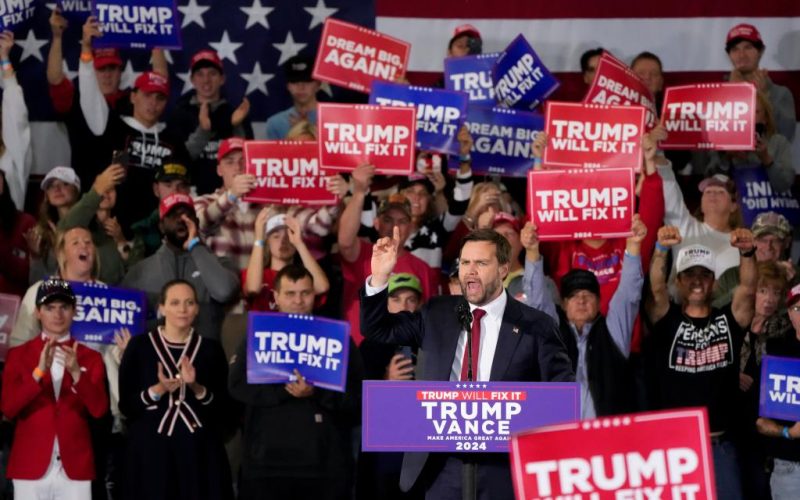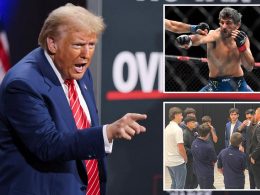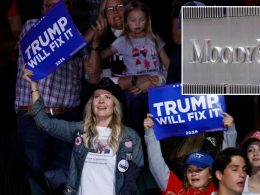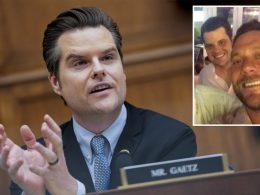Vice Presidential nominee J.D. Vance has become an electoral asset for Team Trump ever since his stomping debate victory against Tim Walz, including persuading some wavering voters — if post-debate polling is any indication.
Throughout his months-long introduction to much of America, he has leaned heavily on his biography, and for good reason — Vance’s rise from a tough Rust Belt upbringing to the US Senate symbolizes America’s promise, but also its failure to deliver for so many of its citizens.
Vance calls those who are left behind “forgotten Americans,” and they are vital to the current Republican coalition, and to the promise that our nation offers the opportunity for a better life to people of all backgrounds.
Many of these voters are, like Vance, hailing from the Rust Belt, and played an essential role in Trump’s shock 2016 victories in my home state of Pennsylvania, as well as Michigan and Wisconsin.
Those folks are already in the Republican camp — but the there are more out there that the campaign had to court to take home a win Tuesday.
For Vance to become a true election clincher on Election Day, he’ll have had to effectively communicate with the millions more forgotten Americans outside the base of the current GOP.
So who are they?
They are working black moms in North Philadelphia, who have to step over needles from “safe” syringe exchanges to pick their kids up from schools that are getting worse, thanks to Democratic policy-makers.
They are Asian American convenience shop owners from Dallas to Durham who came to our country to work hard for the next generation — but whose stores have become sites of frequent looting as “progressive” prosecutors decline to punish shoplifting.
And they are Hispanic and Native American oil and gas workers from New Mexico to the Rio Grande who have been put out of work due to drilling moratoriums, just as the cost of living has skyrocketed.
Like the people from Vance’s hometown, these voters have been passed over. They have not prospered under the Biden-Harris Administration. And policies that serve the Democrat’s base of upper-educated urban elites — like off-shoring manufacturing jobs, lax law enforcement, and opening the border to millions who undercut their wages — have hurt them economically and socially.
There are signs that they are becoming more Republican as-is: working non-white voters have quietly abandoned the Democrats, shifting Republican by double-digits in the last decade.
Vance has a unique opportunity to lean in to these trends, and convince forgotten men or women that his party — and presidential ticket — is listening.
He’s taken steps to do just that, like with his late-summer visit to Philadelphia, where he widened his message to include black business owners: “Do you think the black business leaders in Minneapolis… are grateful that Tim Walz allowed rioters to burn down their businesses?”
Even better was his articulate response in Detroit last month to the question of why black voters should support Trump-Vance: “The story of black Americans is actually very similar to the story of Appalachian white Americans: we moved to places like Detroit, black and white together, because there were good jobs for people who were willing to work hard and play by the rules.”
Vance should continue to use a tone similar to that which he took on abortion during the Vice Presidential debate, by humbly acknowledging that Republicans have too often failed to show up for these communities outside of our base.
Because if Republicans want to win over more of these voters — many millions more — we must win hearts and minds, and not just the argument. The first task at hand is to recognize the opportunity; where Democrats feel they “own” blocks of voters, there is simmering discontent.
Like Vance, Republicans should show up and make a direct appeal to the forgotten among us.
That means committing campaign resources to put messages where these voters can see them: in Asian print publications, on Spanish-language radio, and at black churches.
As a Republican strategist, this act of putting our money where our mouth is is far too often overlooked, though the cost of such outreach is marginal on a major campaign.
Finally, we must show we actually care — not just that we’re right, but that we care, and specifically about people outside of our traditional base. This involves appealing to the heart and not just the head, and sharing our values and how our policies will lift people up and improve our communities.
Where voters feel forgotten, we need to tell them that we see what they are going through, and do not take them for granted. After all, their votes will decide today’s election.
With a unique background, messaging skills and a clear understanding of the need for a more heartfelt appeal, J.D. Vance is in the perfect position to flip many more of these voters across swing states.
The results of Tuesday’s election will be a test to how much he and Trump have engaged with these forgotten Americans, and whether they’ll be able to lay claim to building a new, multiracial, working class base of the Republican Party.
Albert Eisenberg is a political strategist who runs the GOP messaging firm BlueStateRed. Based between Charleston, S.C,. and Philadelphia, he has been featured on RealClearPolitics, Fox, Newsweek and elsewhere. @Albydelphia.








